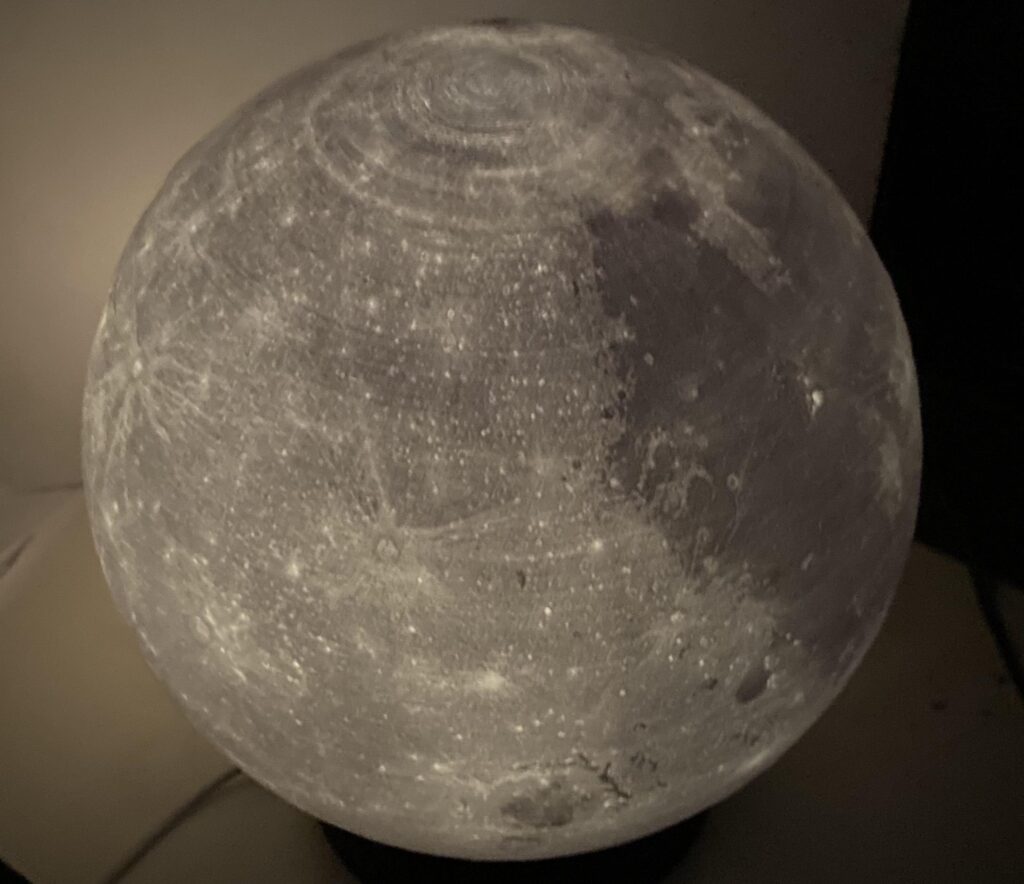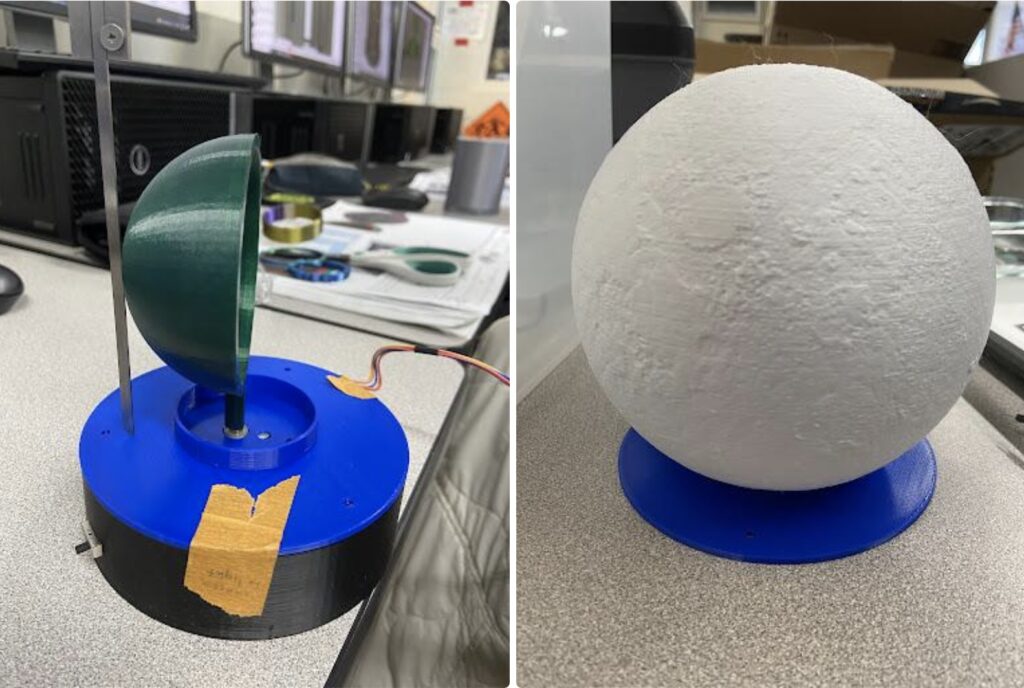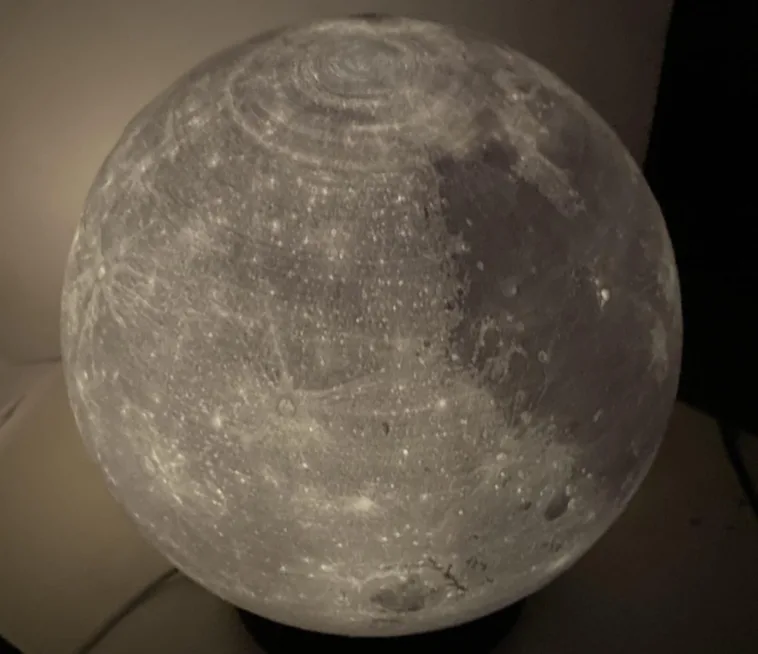
Early astronomers used observations on the moon’s phases to deduce the spherical nature of celestial objects and eventually to develop the heliocentric model that we all know and love today. Astrologers saw deep meaning in the phases of the moon and used that to create an entire mythos. The moon and its phases are important to human history and society, so why not celebrate them with this lovely lamp that showcases them?
At first glance, this looks like the kind of moon lamp that has been very popular in recent years. Such lamps are common 3D printing projects, because it is possible to use real topographic data to create a 3D lithophane that makes the terrain visible. A lithophane is a piece of artwork made using a thin, translucent sheet of varying thickness. When backlit, the thicker areas look darker and the thinner areas look lighter. Like the popular moon lamps, this project starts with a 3D-printed lithophane of the moon. With a light source inside, it looks like an accurate lunar model.

But Payasa and Selina, two high school students in an engineering class, took things a step further by adding an internal rotating shade. That sits between the light source (an LED bulb) and the inner surface of the moon lithophane, creating a shadow that results in an effect similar to the moon going through its phases. An Arduino Nano board controls a small stepper motor that rotates the shade. The user can set the speed of the motor, pushing the moon through its phases as fast as they like.
The post This beautiful lamp shows the moon’s phases from your nightstand appeared first on Arduino Blog.
Website: LINK


